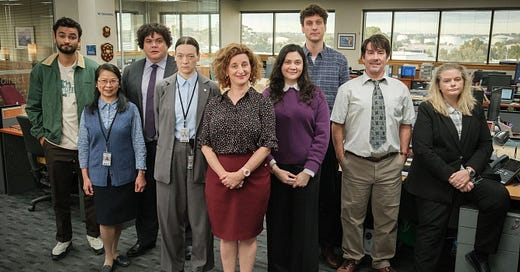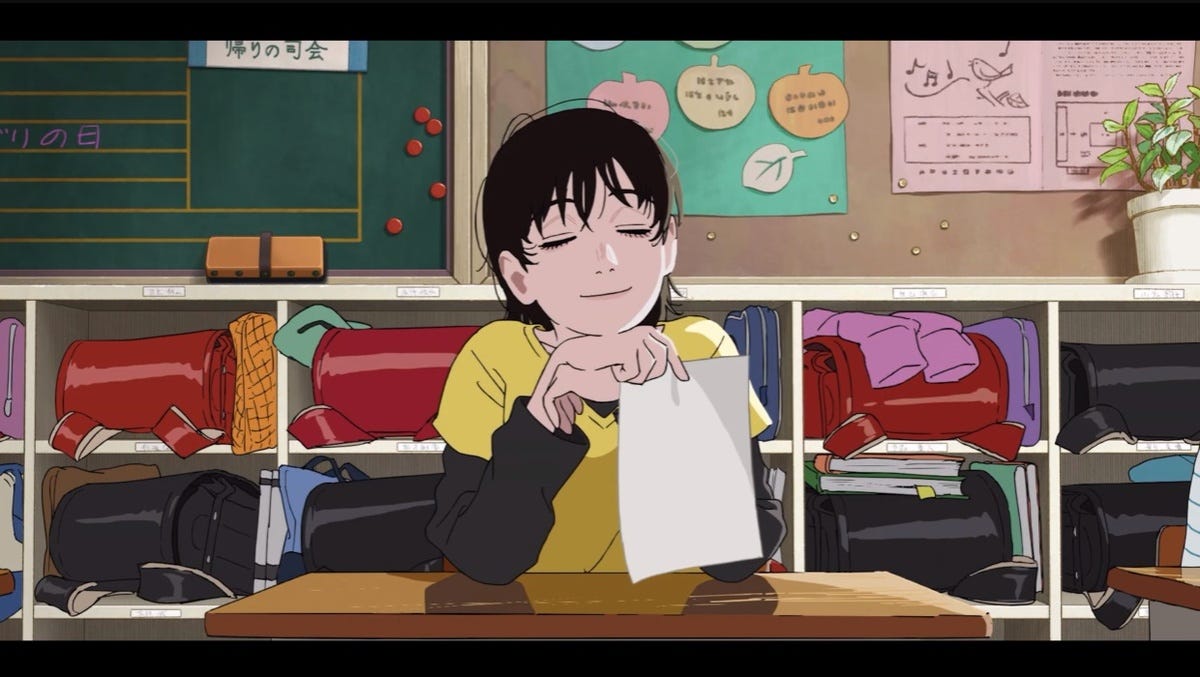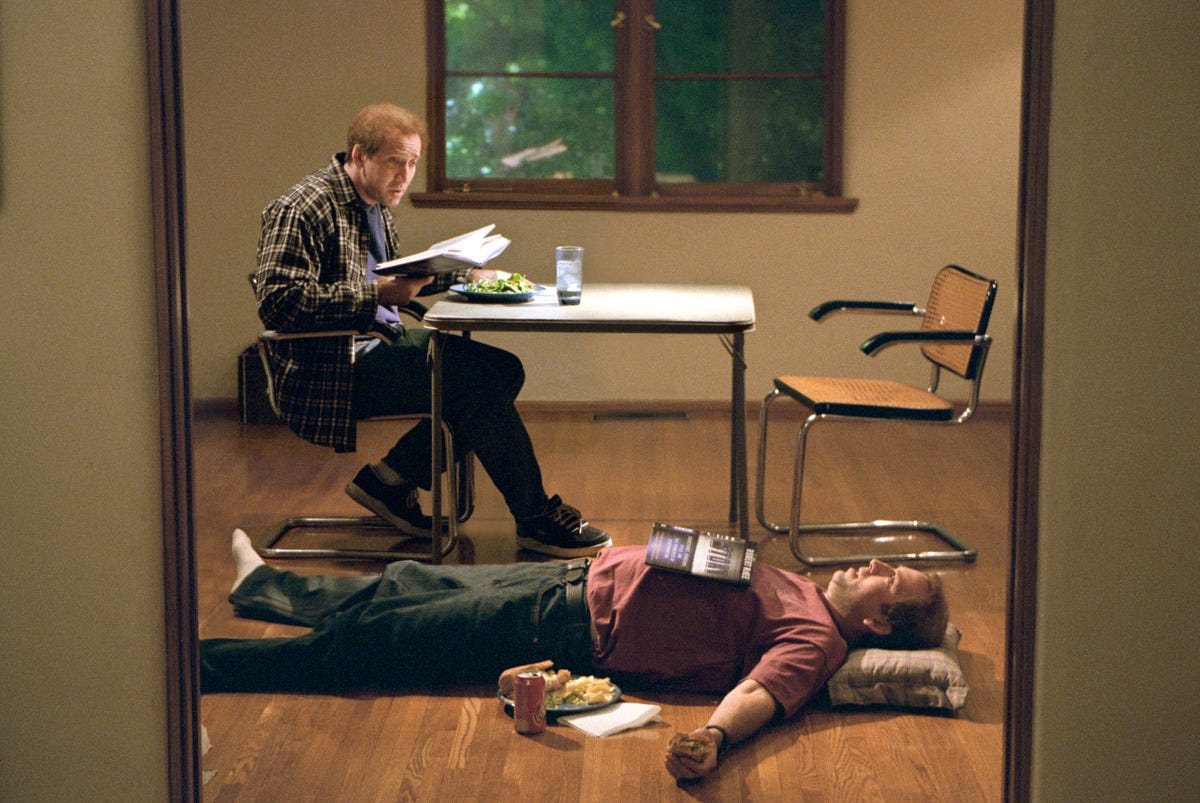Reaction Shots: The Australian Office is Garbage and I’ve Wasted My Life
Plus a review of Look Back and The Kino Around The Corner
There are three ways to make it in Australian media: succumb to the local landscape and never leave, or enter the international realm. The third way is to franchise yourself; adapt an international institution, and localize it like it’s your own.
It’s surprising how most of our Australian media, politics and entertainment tends to be derivative of its American and British counterparts. Sky News and The Spectator have their versions down under. Even CPAC, the garish conservative conference, has an Australian edition. It is a highlight of what is a rather dire landscape, so it makes sense why The Office would have an Australian version.
The Ozfice (is that how you go about it?) is the 13th reiteration of the popular British TV series from 2001 created by Ricky Gervais and Stephen Merchant. While it’s quite faithful to the template - even the gender flipped David Brent/Michael Scott and Dwight Schrutte/Gareth archetypes is on par for the course - it falls short of any of the qualities either the British or the American counterparts have to offer. And because of the standards those Offices had made, no one expects this one to work. Almost all of the similarities are just surface-level, and there’s minimal depth about the local workplace that could have made it unique.
Felicity Ward, who is a stand-up comedian here, is a natural as Hannah Howard, the oddball manager of Finley Crannick’s Western Sydney branch who barely works (most, if not, all of the characters barely do any work, let alone increase productivity) and it doesn’t feel too forced. There are moments where the difference lies in its subtlety, but doesn’t stray from the effect that it has. In this instance, the Finch counterpart is not only her close colleague, but also her work crush, and Hannah is a rather lonely person. One highlight was her scheme to turn the branch into a religious organization to gain tax exemption, and it gets more ridiculous as it goes on with a couple of jokes that had me chuckling. But she doesn’t live up to Michael Scott or David Brent.
The characters are paper thin, but so is the desk environment. The Ozfice is shaped around a Western Sydney office, worked in a Western Sydney cubicle and near a plant, none of this rings true. The UK and the US have either made their settings hell or purgatory, and this brings nothing to the table.
The show is pointless, but why waste time on it? Who needs an Australian version of Jim and Pam, when there’s already a Jim and Pam? Why make female Dwight Schrute autistic Lorde, with a mean streak that barely makes sense? These are questions that the cast and creator have actually been asked themselves, so there’s a nesting doll of pointlessness that we are dealing with. But that’s the overall problem; if there’s no intent, what’s good to even have an Australian version of The Office?
Sometimes, there’s a piece in me who thinks that The Ozfice has potential, but there’s plenty of great Australian comedy like Utopia that filled the void of great workplace comedy and it should bring more passion than this one. Describing the Australian version as the Raygun of comedy is an insult to Raygun, because at least she’s having a ball and making (some) people feel good about themselves being oddball. But it’s an indictment of the Australian industry that this is the kind of thing that gets government funding, and be put on a worldwide streaming service, not to laugh with them. But at them.
Look Back is Great and It Turns Out I Didn’t Waste My Life
As a semi-professional writer, it’s quite painful to create something. It’s even worst when another person in the same medium does a much better job than you do and you grow anxious of his next step. But once you get along with him, he’s now a front orbiter in your network of friends, editors and thinkers. And yet, he’s an emotionally stunted obstacle. Now, what can you do?
Look Back is adapted from the manga by Tatsuki Fujimoto, well known for writing Chainsaw Man. In fact, he wrote this after the first part of Chainsaw Man, that you can tell, just by the fact that it’s very autobiographical. Fujimoto is an author who’s well-known for being a chaotic weirdo and is prone to integrate these traits into his work. So it strikes me that Look Back is more mellow, but still true to the author and is still, in essence, has the same brutal honesty as the characters you find in Chainsaw Man.
The main characters are Fujino and Kyomoto, a mashup of his first name, and their main title is a riff of Chainsaw Man. Fujimo is a student who writes a gag manga for her school newspaper, but then encounters Kyomoto’s strips, which has detailed backgrounds and better timed jokes. Fujino tries to catch up with her, but struggles to match her talents. Instead they become creative partners, and Fujino realizes that Kyomoto, despite her shut-in personality, is entirely influenced by her artistry and work ethic. So they make Japan’s next big manga, but Kyomoto is still afraid of the world around her and they both take their separate ways.
Look Back is not just about creating and fulfilling your passions. It’s about fulfilling it with people who are more alike than you expect. Look Back is very faithful to Fujimoto’s messy aesthetic of the manga. In both mediums, you’ll find that it can evoke very raw emotions, especially during the film’s climax. What makes the film different to the manga is that director Kiyotaka Oshiyama makes a visually flourishing depiction of creativity and friendship. While the animation may feel that it’s missing some detail that Fujimoto adds to the original source and Fujino and Kyomoto’s chemistry is told sometimes in non-diegetic montages, this is not to their disadvantage. In fact, the vibe makes the whole film look more alive.
Mangakas are, for the most part, well-adored for their dedication to their work and are part of a greater industry with billions of young and old readers. But, like their anime peers, it is very cutthroat. There’s so much editorial and artistic pressure that one can handle into one chapter before they go into a long hiatus. Without spoiling it, Look Back shows one of the characters finally getting her big break before she experiences a burnout that makes her lose faith in her dream job. All that’s left now is the job that’s keeping her alive. It is this struggle, which enables the loss of connection, that Look Back captures so well and for that, it's one of the best films this decade has to offer so far.
The Kino Around The Corner - Adaptation (2002)
If you want a movie about the difficulty of creating something that’s darkly funny, but throws oddballs at you, check out Adaptation, the sophomore effort and collaboration between director Spike Jonze and screenwriter Charlie Kaufman, who is embodied by Nicolas Cage, and who also embodies his dim-witted fake twin Donald Kaufman. Kaufman manages to make this vesting and complex, but Spike Jonze hones that in by making it emotionally curious. Chris Cooper and Meryl Streep are both fantastic in their roles, with the former getting an Oscar nomination for Best Supporting Actor. But the major highlight is Brian Cox, answering Cage’s Kaufman’s question about writing with no conflict, because nothing happens in the world. Not only is it so masterful, it’s essentially my philosophy in art.






